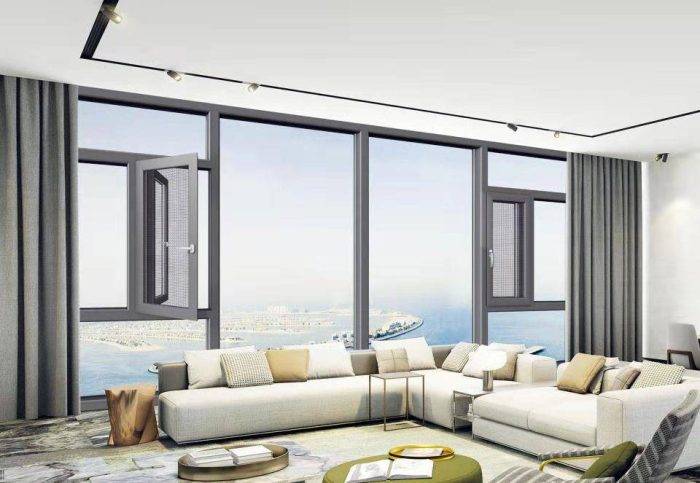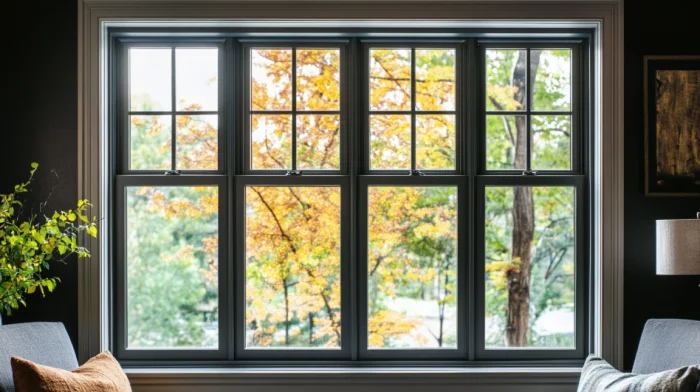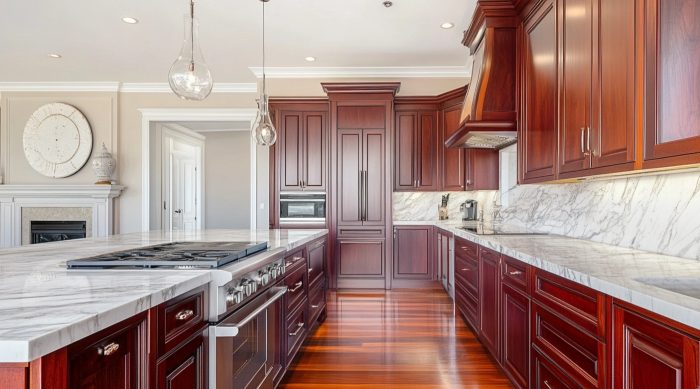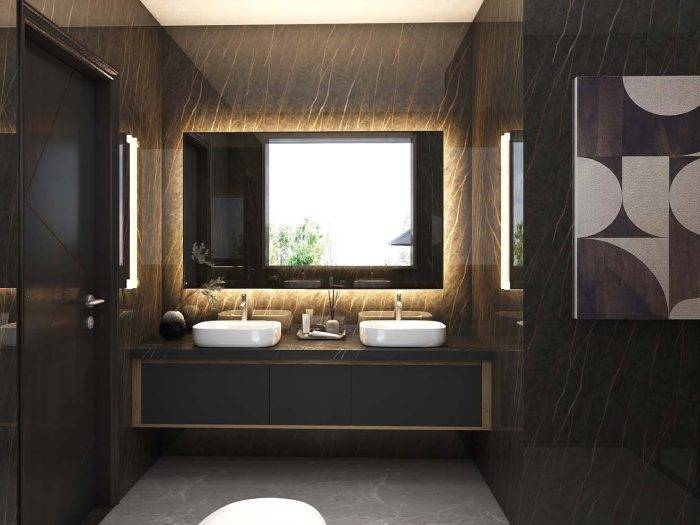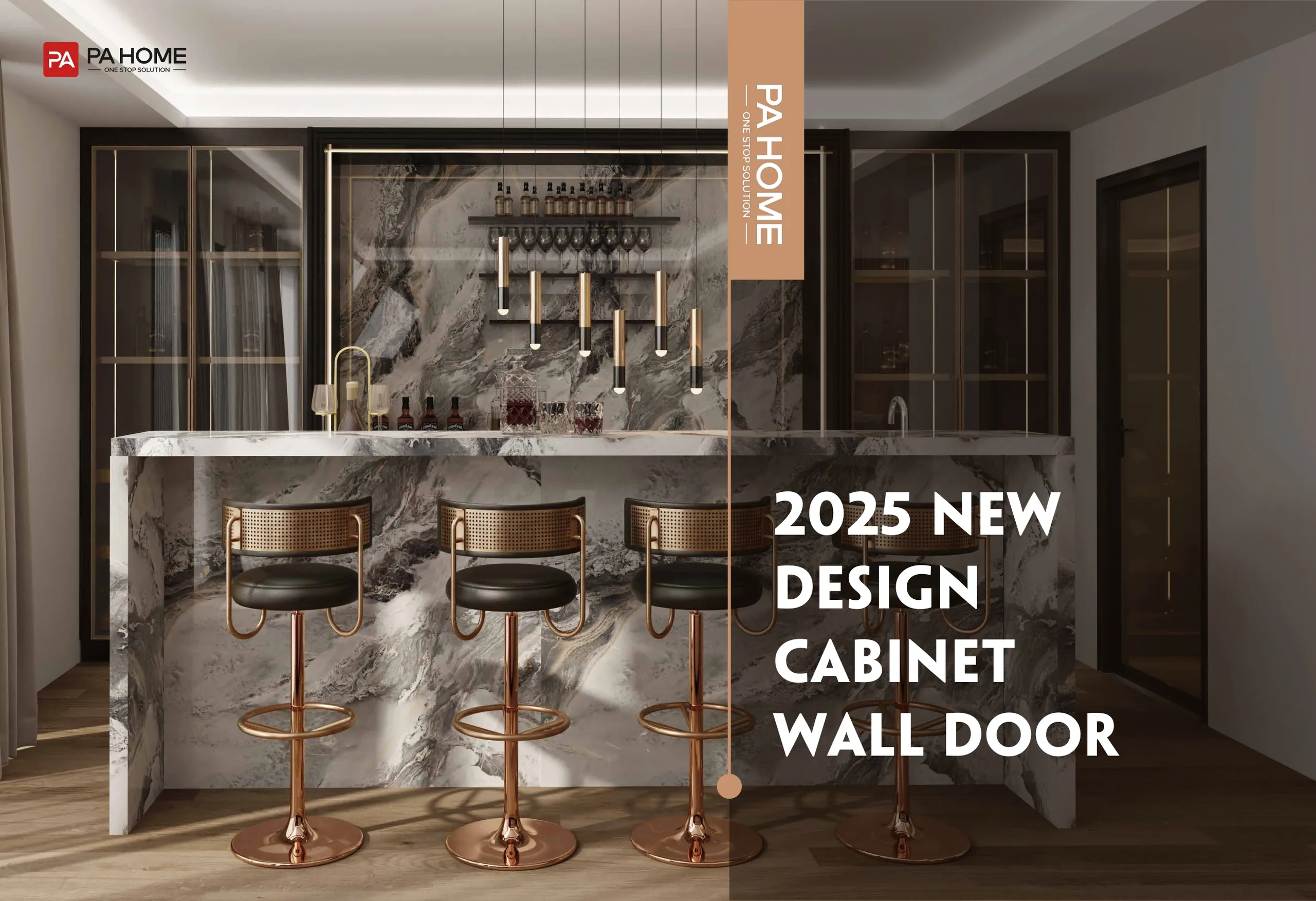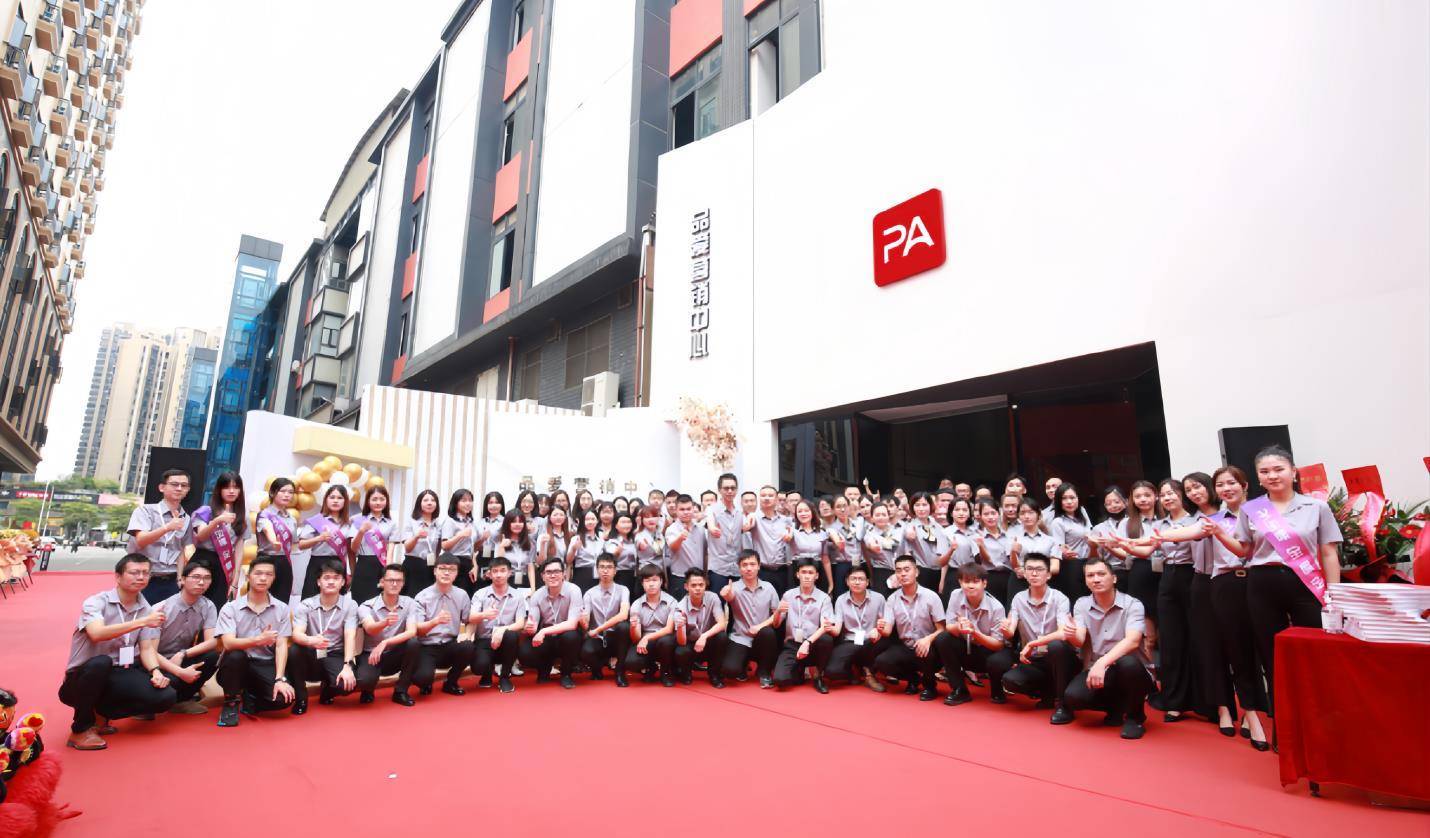Aluminum windows have transformed how we design modern buildings. They’re strong, sleek, and built to last. Whether you’re designing a villa, renovating an apartment, or managing a large commercial project, aluminum frames offer the perfect balance of style and performance. This guide breaks down everything you should know before investing—so you buy with confidence.
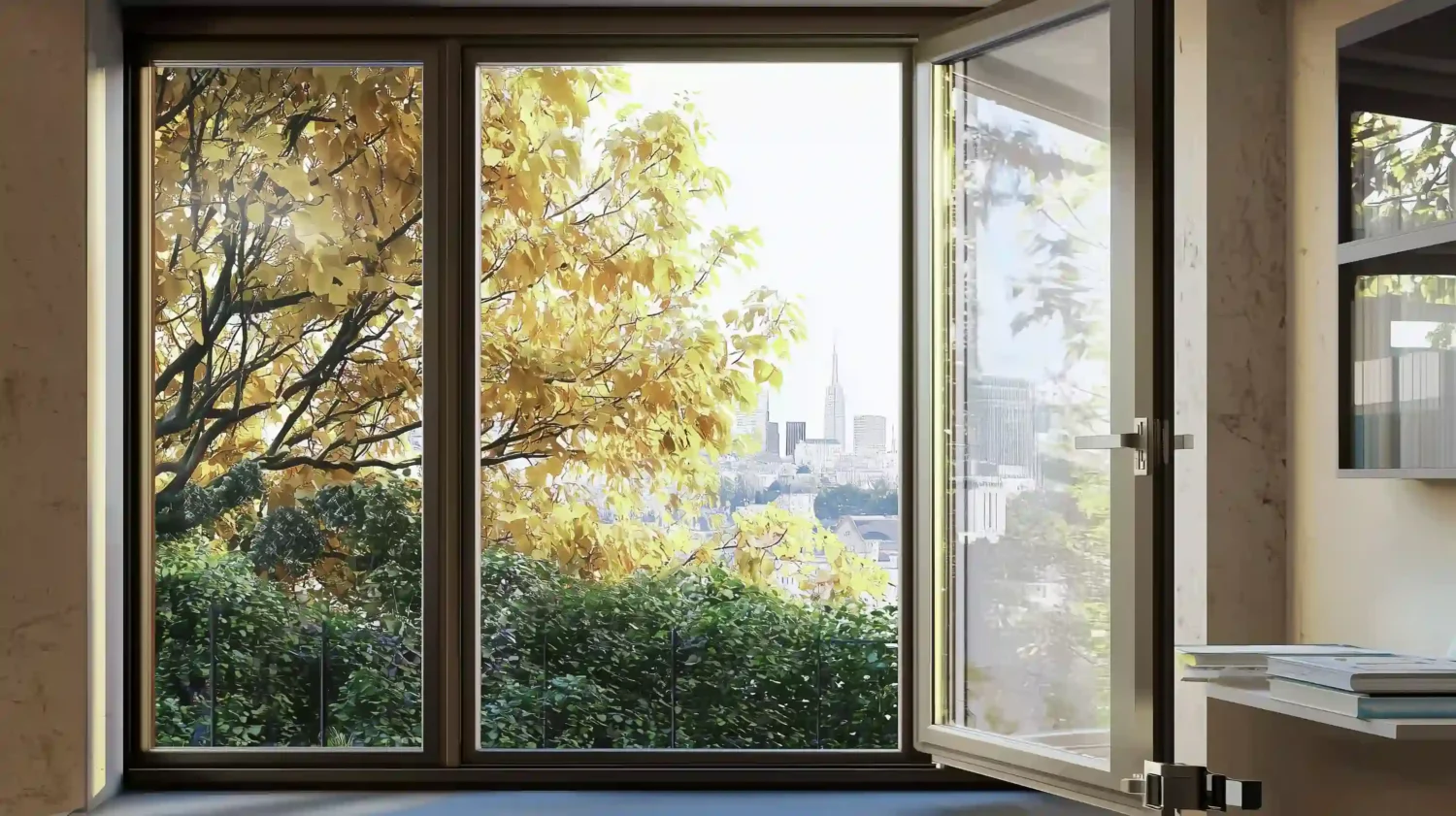
Why Aluminum Window So Popular?
Walk around any modern neighborhood or hotel project, and you’ll spot the same feature—sleek, metallic window frames. Aluminum windows are now the go-to choice for architects and homeowners alike. Why? They deliver minimalist aesthetics that blend beautifully with both glass façades and textured walls.
Unlike bulky wooden frames, aluminum’s slim profiles let in more natural light and create a clean, spacious look. Plus, the material doesn’t warp, crack, or fade over time. According to Statista 2024, aluminum window demand has grown more than 20 percent globally in the past five years, especially in tropical and coastal markets. Durability and modern design make aluminum windows a clear winner for 2025.
What Are the Advantages of Aluminum Windows?
Aluminum windows aren’t just pretty—they’re practical.
Durability & Strength
Aluminum frames can withstand extreme weather, from scorching desert heat to humid coastal rain. They resist corrosion, termites, and UV damage far better than wood or PVC.
Low Maintenance
A quick wipe-down is enough. No repainting, no sealing, no rotting. Powder-coated finishes last 10–15 years without fading.
Design Flexibility
Need curved panels, oversized sliders, or narrow sightlines? Aluminum allows complex designs without compromising structure.
Energy Performance
Modern thermal-break technology separates interior and exterior metal sections to reduce heat transfer. NFRC-certified aluminum windows can achieve U-values as low as 1.2 W/m²K when paired with Low-E double glazing.
Sustainability
Aluminum is 100 percent recyclable and requires less maintenance over its lifetime—making it a smart, eco-friendly investment.
Which Aluminum Window Style Fits Your Home Best?
Aluminum frames work with almost every window configuration. Here’s a quick rundown of popular options:
- Sliding Windows: Perfect for modern apartments or small balconies. They save interior space and offer smooth horizontal movement.
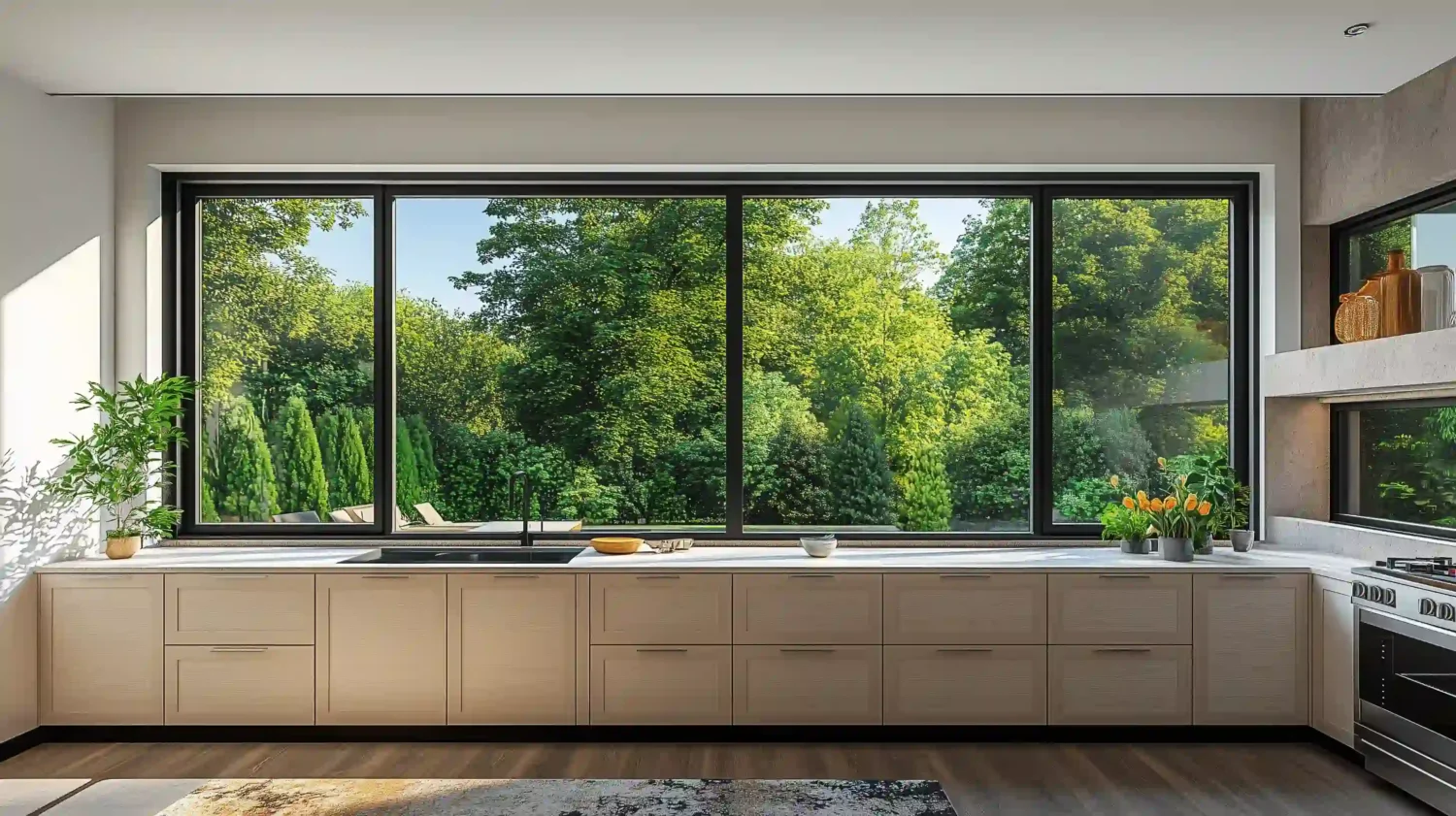
- Casement Windows: Hinged on the side, these open outward for excellent ventilation—ideal for kitchens and bedrooms.
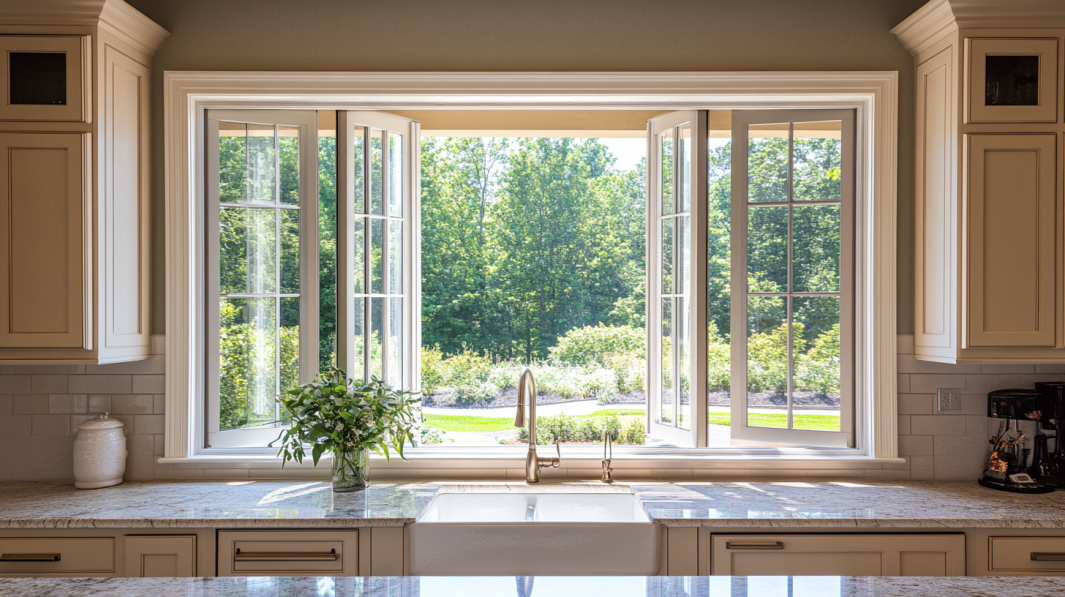
- Tilt-Turn Windows: Operate two ways: tilt for airflow or turn inward for full cleaning access. Popular in Europe and luxury homes.
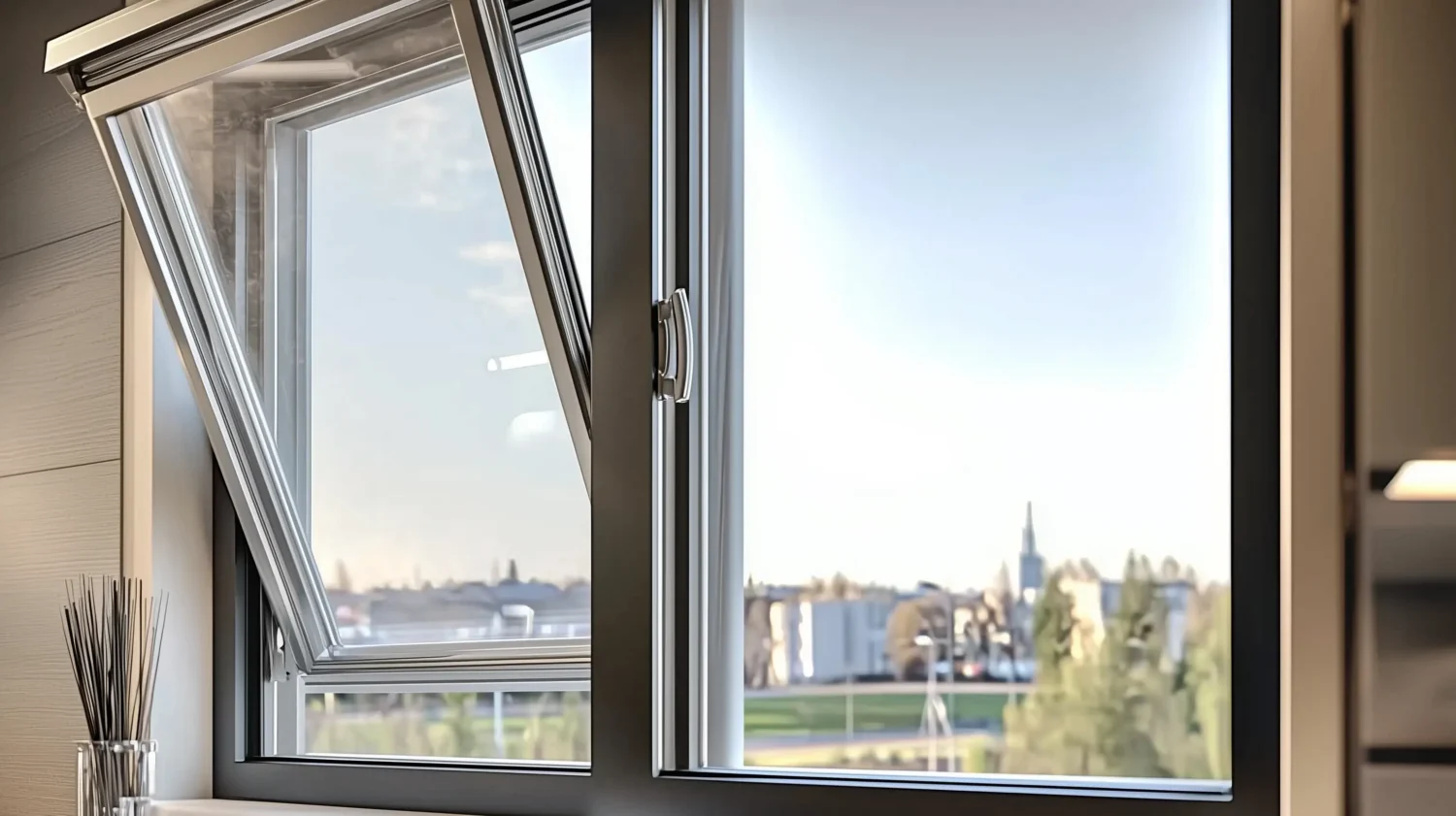
- Fixed Windows: Stationary panels that frame outdoor views and let in maximum light. Great for accent walls or staircases.
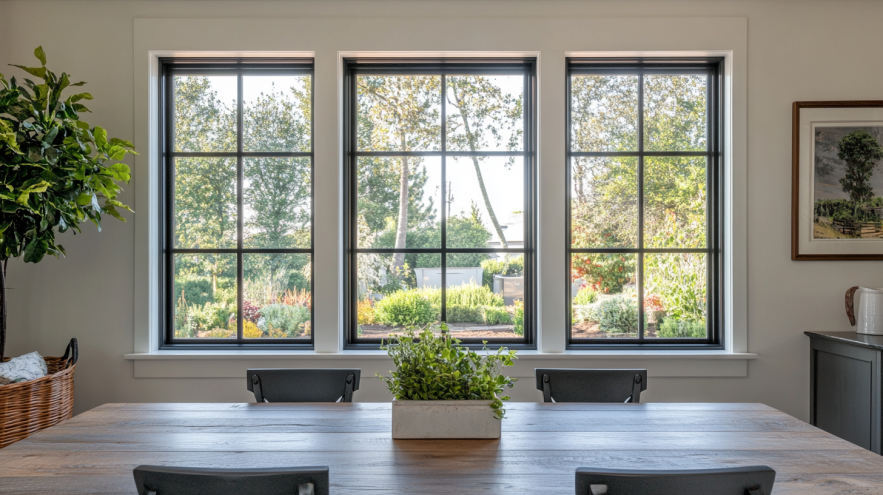
- Bi-Fold Windows: Fold panels neatly to one side for seamless indoor-outdoor living—perfect for cafes or pool areas.
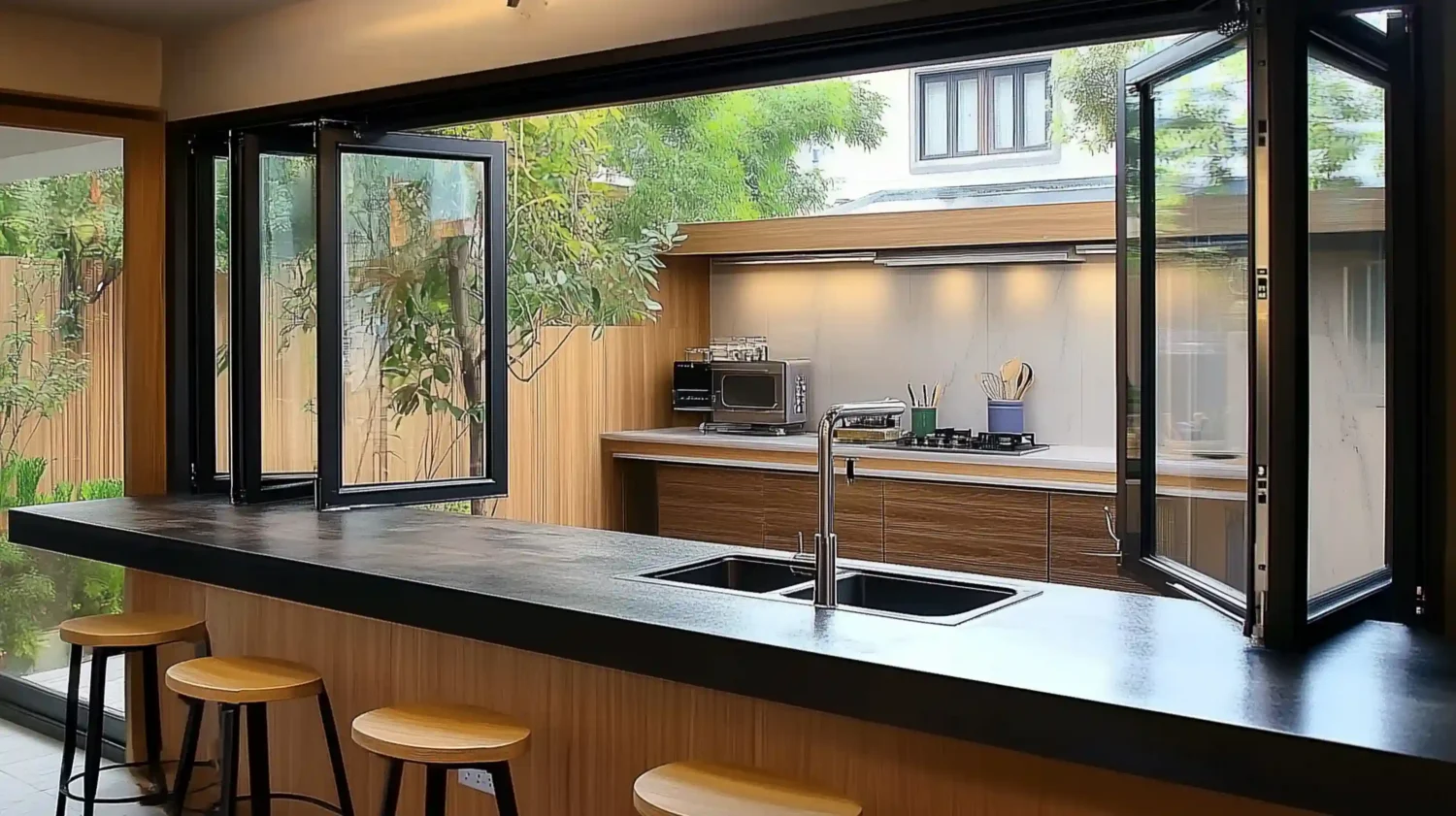
Each type offers unique functionality. When choosing, consider airflow needs, available space, and overall design consistency.
What Should You Check Before Buying Aluminum Windows?
Before signing any purchase order, take a closer look at the details that define long-term performance.
1️⃣ Frame Thickness and Profile Design
Residential frames are typically 1.2–1.6 mm thick, while commercial projects may require 2.0–2.5 mm. A thicker profile means better wind resistance and strength.
2️⃣ Surface Finishing
Look for powder coating or anodizing rated at least 60–80 microns. These coatings enhance corrosion resistance—vital in coastal climates.
3️⃣ Hardware and Seals
Choose stainless-steel hinges, multi-point locks, and EPDM gaskets for airtight closure. Cheap hardware often fails first.
4️⃣ Glass Specifications
Double or triple glazing improves insulation and noise reduction. Low-E or laminated glass adds energy efficiency and safety.
5️⃣ Certifications & Warranty
Reliable suppliers provide NFRC, CE, or AS2047 certifications proving compliance with performance standards. Always ask for a 5-year or longer frame warranty.
A quick checklist before purchase saves you from headaches later—and ensures you get windows that truly match your project’s needs.
How Much Do Aluminum Windows Cost in 2025?
Prices depend on profile size, finish, and glass configuration. As a reference:
Residential aluminum sliding window: $120–$180 per m² (installation included)
Casement or tilt-turn window: $150–$220 per m²
Large commercial systems or curtain walls: $300 per m² and above
Labor and installation can add 15–25 percent. Custom powder-coated colors or imported hardware will raise the total slightly.
While aluminum costs more upfront than uPVC, it lasts nearly twice as long. Minimal maintenance, improved energy efficiency, and higher property value make it a cost-effective investment over 20 years.
Are Aluminum Windows Suitable for Hot or Coastal Climates?
Absolutely. Aluminum’s resilience shines in environments where other materials struggle.
In tropical climates, where humidity and UV exposure are constant, aluminum’s coated surface prevents swelling or fading. In coastal regions, anodized finishes and marine-grade powder coatings shield against salt corrosion.
Look for:
Drainage Systems that prevent rainwater buildup.
Rubber Seals to block dust and moisture.
Thermal Break Profiles to reduce heat gain indoors.
For example, the Energy Star Climate Zone Map 2024 ranks aluminum with thermal breaks among the top solutions for hot zones like the UAE and Indonesia. Properly coated aluminum windows can last 30 years or more with minimal maintenance.
| Aluminum Window Type | Ventilation | Energy Efficiency | Ease of Cleaning | Space Efficiency | Ideal For |
|---|---|---|---|---|---|
| Sliding Window | ★★★☆☆ | ★★★★☆ | ★★★★★ | ★★★★★ | Apartments, Balconies |
| Casement Window | ★★★★★ | ★★★★★ | ★★☆☆☆ | ★★★☆☆ | Kitchens, Bedrooms |
| Tilt-Turn Window | ★★★★☆ | ★★★★★ | ★★★★★ | ★★★☆☆ | Luxury Homes, Offices |
| Fixed Window | ☆☆☆☆☆ | ★★★★★ | ★★★★★ | ★★★★★ | Living Rooms, Hallways |
| Bay Window | ★★★☆☆ | ★★★★☆ | ★★★☆☆ | ★★☆☆☆ | Dining Areas, Reading Corners |
| Bi-Fold Window | ★★★★★ | ★★★☆☆ | ★★★☆☆ | ★★☆☆☆ | Patios, Cafes, Resorts |
How to Choose the Right Aluminum Window Manufacturer?

The manufacturer you choose determines 80 percent of your satisfaction. Here’s what to evaluate:
● Factory Scale and Technology
Ask if the factory uses Industry 4.0 automation—CNC cutting, digital BOM tracking, and QR-code quality systems ensure precision and consistency.
● Certifications & Compliance
Top factories comply with NFRC, CE, and AS2047. These standards verify energy performance and structural integrity.
● Project Experience
Review past references in residential, hotel, or commercial developments. Manufacturers with global projects can better handle complex logistics.
● After-Sales Support
Ensure there’s a clear warranty, replacement policy, and local installation partner. Communication after delivery matters as much as price.
Factories like PA Home integrates design, production, and installation support across multiple regions—helping developers avoid fragmented sourcing and inconsistent quality.
👉 Looking for a aluminum window manufacturer? Contact PA Home today for free design consultation and a personalized quote.
What Are the Latest Design Trends in Aluminum Windows?
Window design now merges function and fashion. Some exciting 2025 trends include:
● Ultra-Slim Frames – Architects love narrow sightlines that blur boundaries between indoors and outdoors.
● Black & Charcoal Finishes – Matte tones complement both modern villas and commercial façades.
● Panoramic Glass Walls – Large glass panels create seamless transitions and flood interiors with natural light.
● Curved Profiles – Gentle curves soften modern façades while maintaining structural strength.
● Smart Glass Integration – Switchable or tinted glass adapts to light conditions, improving comfort and energy savings.
These innovations prove that aluminum isn’t just a frame—it’s an architectural feature that defines the character of your building.
Conclusion
Aluminum windows combine aesthetics, durability, and performance like no other material. They fit modern lifestyles, withstand harsh climates, and enhance property value.
If you’re planning a home, hotel, or mixed-use project in 2026, look beyond standard retail options. Choose factory-direct aluminum windows from a trusted manufacturer. You’ll enjoy higher quality, better customization, and long-term savings—all backed by professional support from start to finish.
FAQs
Aluminum windows are stronger, slimmer, and last longer than uPVC. They handle heat and moisture better, making them ideal for modern homes and coastal climates.
High-quality aluminum windows can last 30–40 years with minimal maintenance. Their powder-coated surface prevents rust, fading, and corrosion even in harsh weather.
Yes. Modern aluminum windows use thermal break technology and Low-E glass to reduce heat transfer, improving insulation and lowering energy bills.


